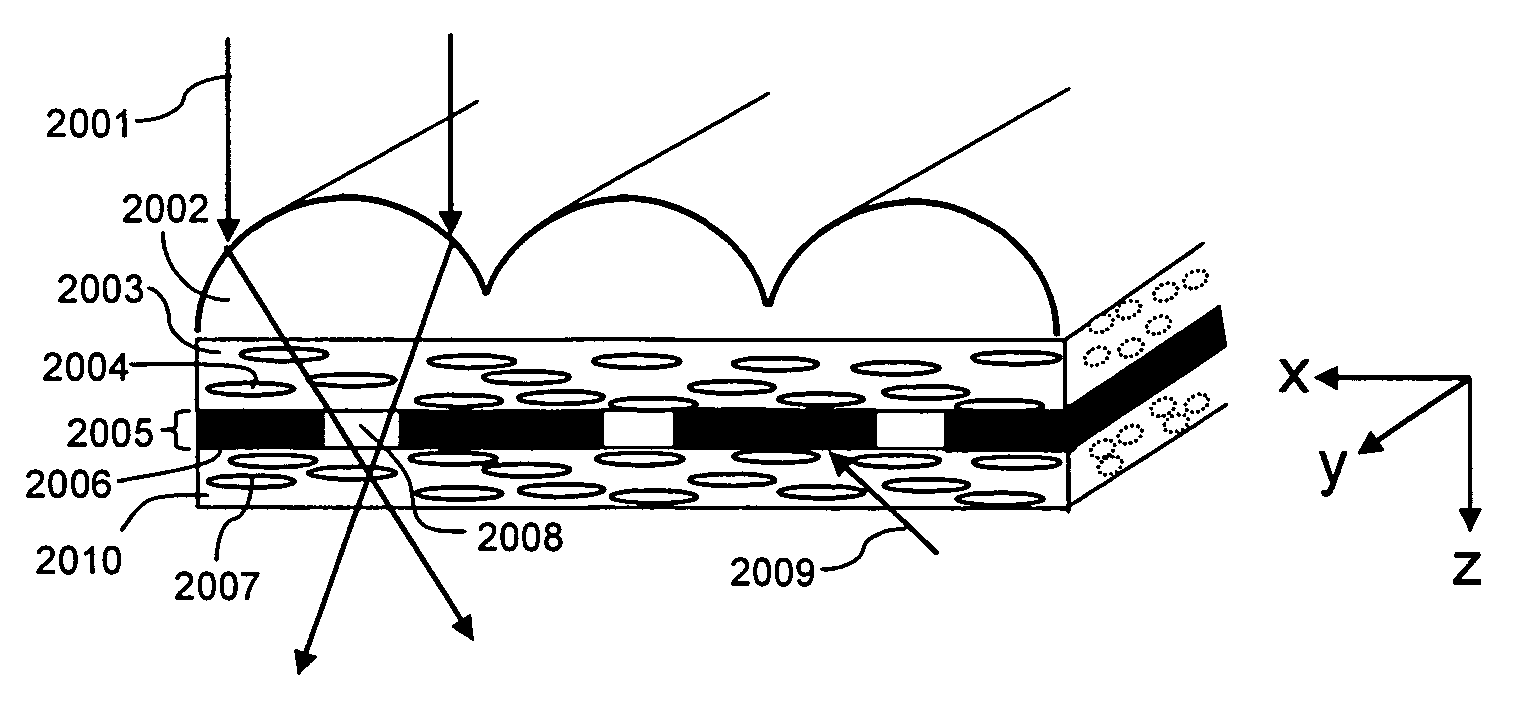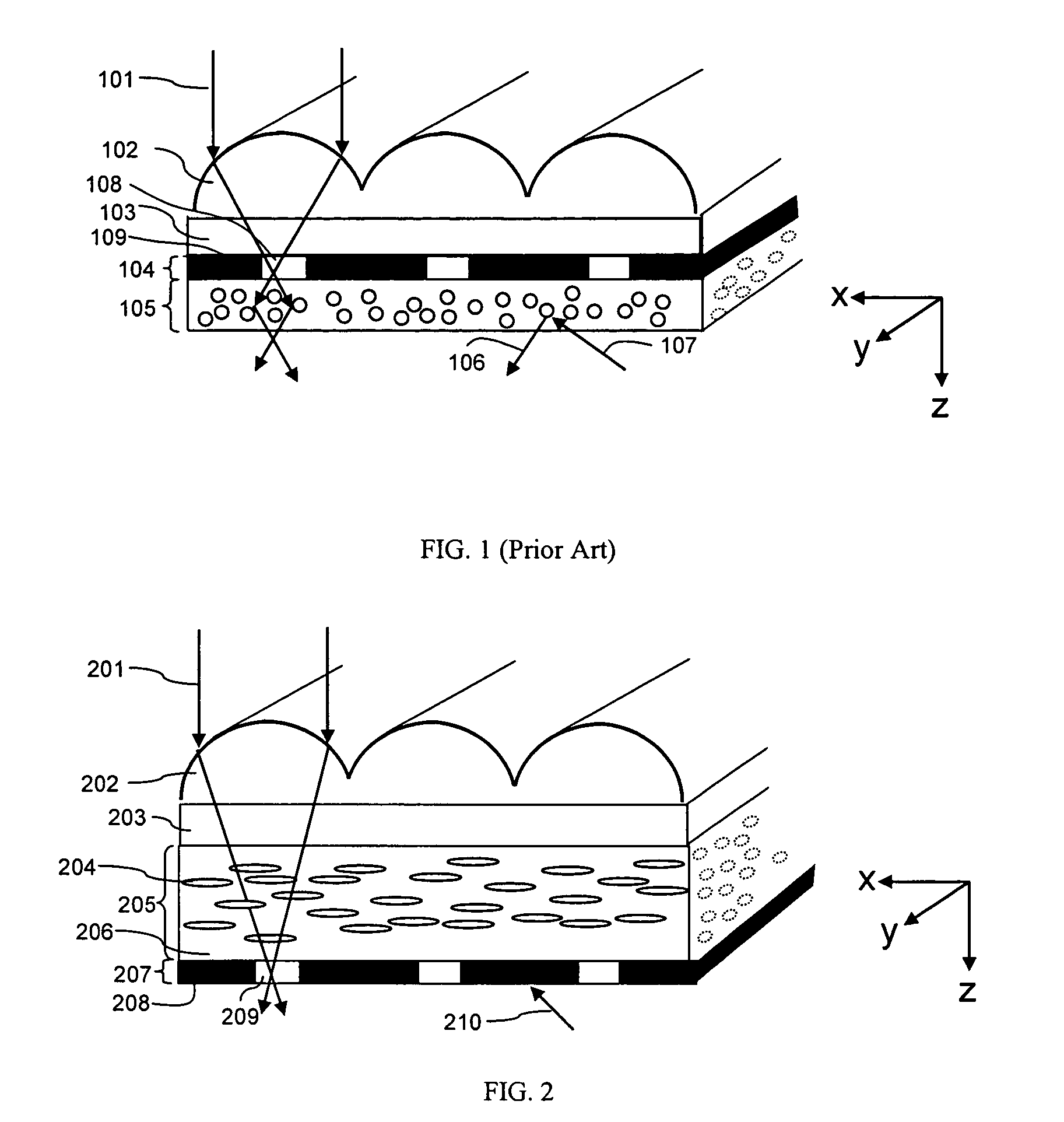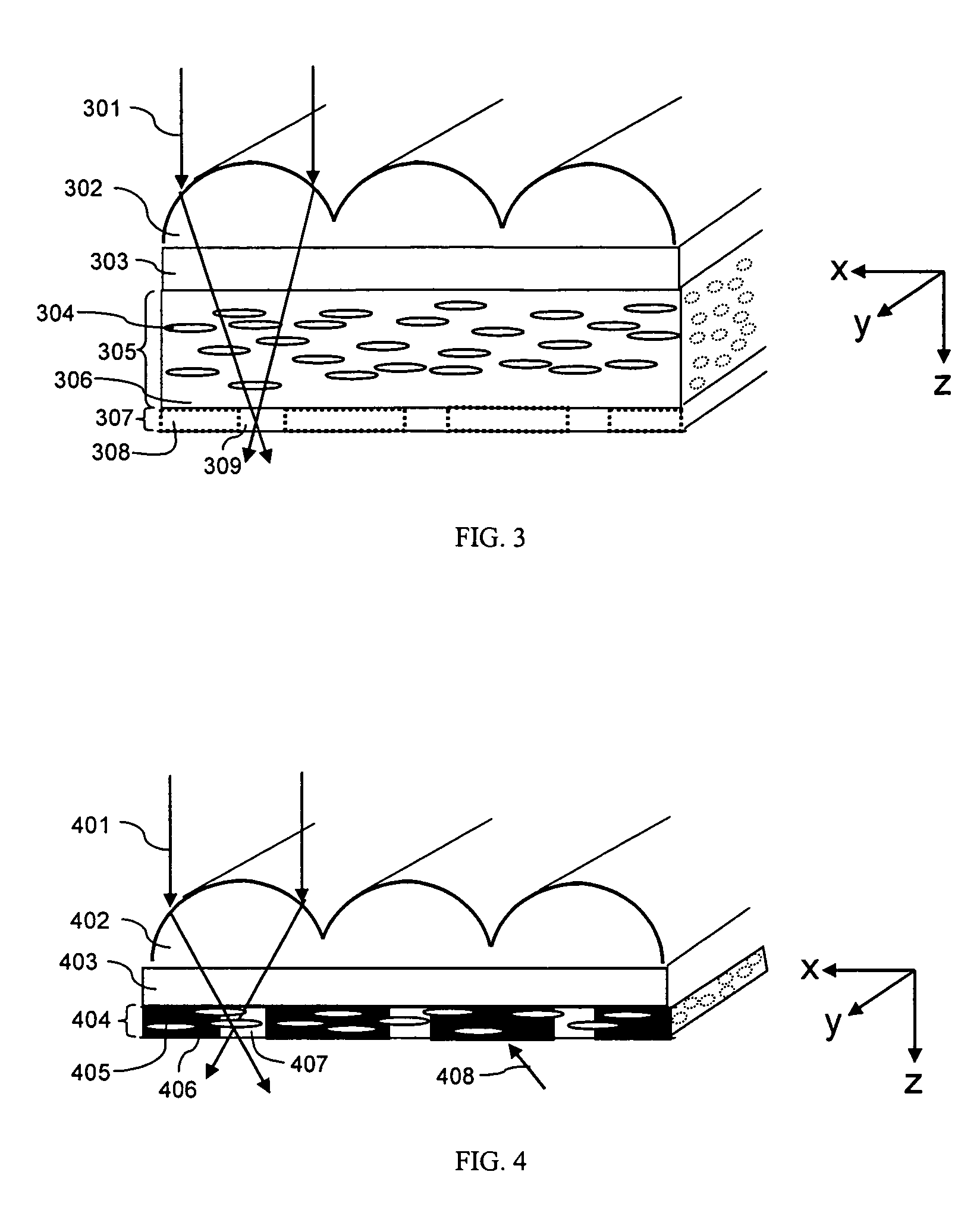Imaging material with improved contrast
a technology of image contrast and material, applied in the field of design, can solve the problems of reducing contrast, reducing image contrast, and diffusive elements, and achieve the effects of reducing backscatter, low speckle contrast, and high image contras
- Summary
- Abstract
- Description
- Claims
- Application Information
AI Technical Summary
Benefits of technology
Problems solved by technology
Method used
Image
Examples
example 1
[0116]A projection screen, in accordance with the present invention, can be produced as described in FIG. 18, that is designed to have increased ambient light absorption and increased gain. This is possible because the diffusion in the vertical plane is achieved by an asymmetric diffuser located before the black stripe region. This enables a diffuser added on the viewer side of the black stripe region to have reduced diffusion angles, and as a result, less backscatter. The additional diffuser also reduces the speckle contrast.
[0117]A comparative sample for reference to prior art was first made. Sample S1 was made by first index matching a lenticular lens from Reflexite Corporation to a photopolymer film Cromalin™ from DuPont using an index matching fluid with a refractive index of 1.51. The Cromalin™ was exposed through the lenticular lens by collimated UV light. Toner was then applied to the sample achieving a black stripe pattern. A symmetric diffuser with a FWHM of 16 degrees by ...
example 2
[0121]A projection screen, in accordance with the present invention, can be produced as described in FIG. 18, that is designed to have increased ambient light absorption and increased gain. This is possible because the diffusion in the vertical plane is achieved by an asymmetric diffuser located before the black stripe region. This enables the diffuser on the viewer side of the black stripe region to have reduced diffusion angles, and as a result, less backscatter.
[0122]Sample A2 was made by first creating an asymmetric diffuser with a FWHM of 18 degrees by 6 degrees and gain of 44 by dispersing 30% by weight polyethylene particles with a refractive index of 1.51 within a matrix material of polyester with a refractive index of 1.568 and stretching the material as described in U.S. Pat. No. 5,932,342. This asymmetric diffuser was index matched to a lenticular lens from Reflexite Corporation to using an index matching fluid with a refractive index of 1.51. A photopolymer film Cromalin...
example 3
[0125]A projection screen, in accordance with the present invention, can be produced as described in FIG. 2, that is designed to have increased ambient light absorption and increased gain. This is possible because the diffusion in the vertical plane is achieved by an asymmetric diffuser located before the black stripe region. By eliminating the need for a second diffuser on the viewer side of the black stripe region, the ambient light absorption is improved.
[0126]Sample A3 was made by first creating an asymmetric diffuser with a FWHM of 18 degrees by 6 degrees and gain of 44 by dispersing 30% by weight polyethylene particles with a refractive index of 1.51 within a matrix material of polyester with a refractive index of 1.568 and stretching the material as described in U.S. Pat. No. 5,932,342. This asymmetric diffuser was index matched to a lenticular lens from Reflexite Corporation to using an index matching fluid with a refractive index of 1.51. A photopolymer film Cromalin™ from ...
PUM
 Login to View More
Login to View More Abstract
Description
Claims
Application Information
 Login to View More
Login to View More - R&D
- Intellectual Property
- Life Sciences
- Materials
- Tech Scout
- Unparalleled Data Quality
- Higher Quality Content
- 60% Fewer Hallucinations
Browse by: Latest US Patents, China's latest patents, Technical Efficacy Thesaurus, Application Domain, Technology Topic, Popular Technical Reports.
© 2025 PatSnap. All rights reserved.Legal|Privacy policy|Modern Slavery Act Transparency Statement|Sitemap|About US| Contact US: help@patsnap.com



